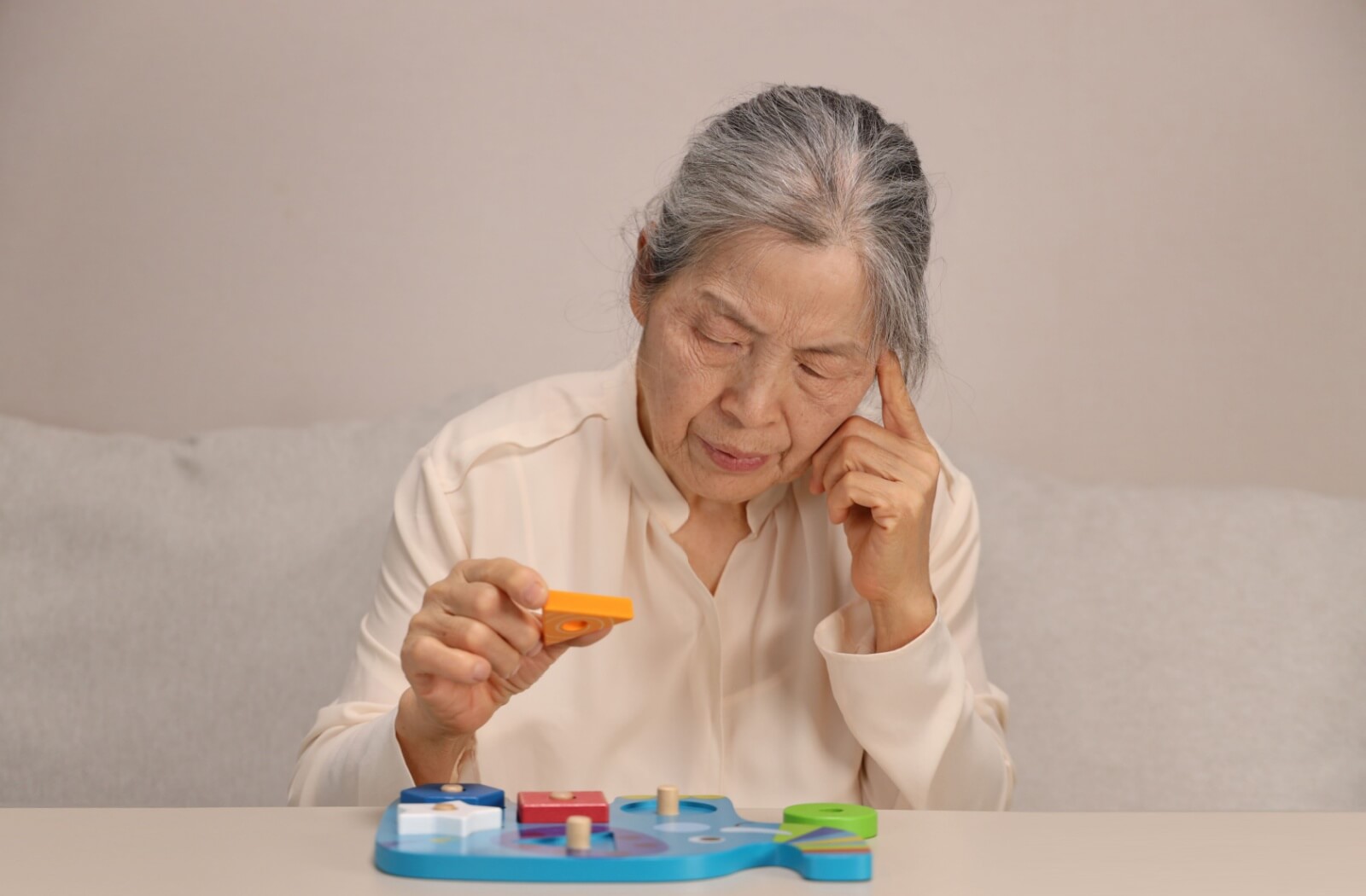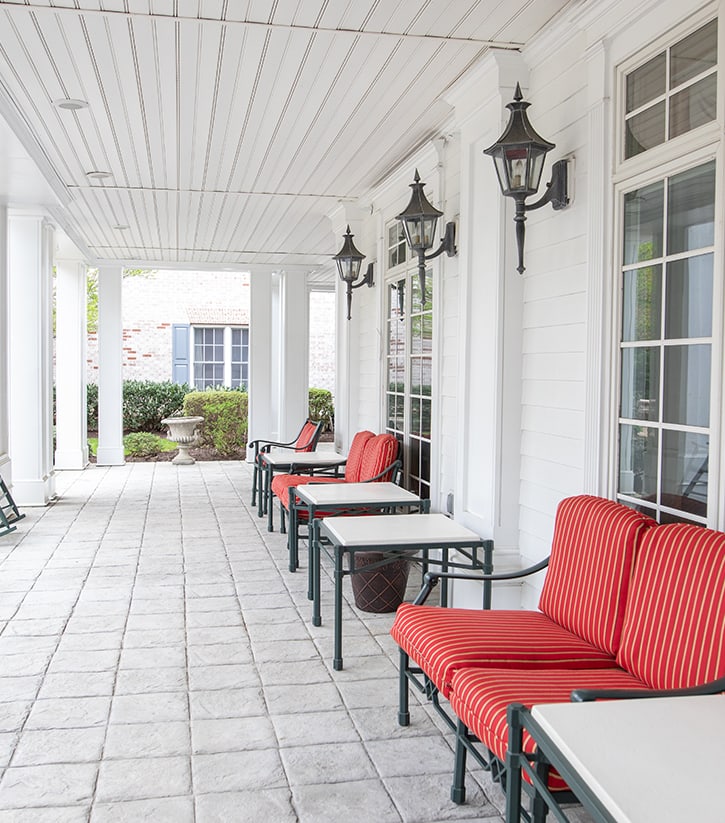Caring for a loved one with memory loss is challenging, and transitioning to memory care is a deeply personal decision. Memory care offers specialized support for people living with Alzheimer’s and dementia and provides a safe, structured environment tailored to their needs.
It may be time to consider memory care if your loved one is experiencing increased confusion, difficulty with daily tasks, safety concerns, behavioral changes, or caregiver burnout. While assisted living helps with daily activities, memory care provides expert support for cognitive decline, ensuring a secure setting with trained staff. Recognizing the warning signs can help families make informed care decisions.
Signs It May Be Time for Memory Care
Increased Forgetfulness and Confusion
Occasional forgetfulness is a normal part of aging, but when memory loss begins to disrupt daily life, this may be a sign of a more serious issue. Frequent confusion, forgetting important dates, or repeatedly asking the same questions can indicate cognitive decline.
Other concerning signs include:
- Forgetting to take medications or taking incorrect dosages.
- Getting lost in familiar places.
- Difficulty recognizing family members or close friends.
When memory loss progresses to the point where it interferes with daily routines and safety, a structured memory care environment may be necessary.
Difficulty Managing Daily Activities
One of the most telling signs that memory care may be needed is difficulty with activities of daily living (ADLs), such as:
- Dressing and grooming.
- Preparing meals and eating regularly.
- Keeping up with personal hygiene.
In a memory care community, trained professionals assist residents with these tasks, helping them maintain dignity and comfort.
Increased Safety Concerns
Safety is a top priority for seniors living with dementia, as they may engage in behaviors that put them at risk. Common safety concerns include:
- Wandering – Many people with dementia are prone to wandering, which can be dangerous if they leave home unsupervised.
- Household accidents – This includes forgetting to turn off the stove, improperly handling sharp objects, or falling due to poor judgment and coordination.
- Poor decision-making – Those with cognitive decline may be more susceptible to financial scams or unsafe social situations.
A structured care plan with professional support helps ensure safety, offering supervision, assistance, and strategies to reduce risks.
Increased Agitation or Behavioral Changes
Changes in mood and behavior can be a significant indicator that your loved one needs a higher level of care. If your loved one is experiencing increased agitation, aggression, or emotional distress, they may benefit from the structured support of a memory care setting.
Common behavioral changes include:
- Increased anxiety or depression.
- Outbursts of anger or frustration.
- Social withdrawal or fearfulness.
Specialized care programs like memory care incorporate therapeutic activities and structured routines to help those living with dementia feel more at ease and engaged.
Caregiver Burnout
Caring for a loved one with dementia is emotionally and physically demanding. If caregiving responsibilities are becoming overwhelming or affecting your own health and well-being, it may be time to consider professional care.
Signs of caregiver burnout include:
- Constant exhaustion and stress.
- Feelings of guilt or helplessness.
- Difficulty balancing personal and work responsibilities.
Professional memory care services offer around-the-clock support, giving family members peace of mind and the opportunity for respite from caregiving responsibilities.

What to Expect in a Memory Care Community
A Secure & Supportive Environment
Memory care communities are designed with safety in mind. Features include:
- Secured entrances and exits to prevent wandering.
- Monitored environments with 24/7 staff assistance.
- Simple, structured layouts to reduce confusion.
These measures help ensure that residents are safe while still allowing them to maintain a sense of independence.
Personalized Care Plans
Each resident receives a personalized care plan that addresses their specific needs. These plans may include:
- Medication management.
- Assistance with daily activities.
- Cognitive therapy and memory-enhancing programs.
By focusing on individualized care, memory care communities create a comfortable and engaging environment for residents.
Engaging Activities & Social Opportunities
Structured activities play a crucial role in memory care, helping residents stay engaged and maintain cognitive function. Activities may include:
- Art therapy and music programs.
- Group exercises and movement classes.
- Reminiscence therapy and storytelling sessions.
These activities provide meaningful engagement while fostering social interaction.
Memory Care vs. Other Senior Living Options
Understanding the differences between senior living options can help families make the right choice for their loved one’s needs.
- Independent living: Designed for seniors who can live independently but want a maintenance-free lifestyle. Residents enjoy social activities, dining options, and convenient amenities without requiring daily care.
- Assisted living: Provides support with daily tasks such as bathing, dressing, and medication management while promoting independence. Assisted living is ideal for seniors who need some assistance but do not require specialized memory care.
- Memory care: Offers specialized care for individuals with Alzheimer’s and dementia, providing a structured environment with trained staff to support cognitive function and safety.
Making the Transition to Memory Care
If you’ve determined that memory care is the right option for your loved one, planning the transition can help ease the process.
- Open and honest conversations: Discussing memory care with a loved one can be difficult, but approaching the conversation with empathy and patience can help them feel more comfortable.
- Touring memory care communities: Visiting a memory care community allows families to see the environment firsthand and ask important questions about services and daily routines.
- Gradual transition and emotional support: Helping a loved one adjust to a new environment takes time. Encouraging their participation in activities and maintaining regular visits can help make their transition smoother.
Discover Exceptional Memory Care at Aarondale
Discover the vibrant community of Aarondale, where exceptional living meets dedicated service.
Our residents enjoy a lifestyle enriched with our signature programs, from the convenience of RUI Concierge to the sophisticated dining experiences at Taste of RUI.
With RUI FIT, residents can maintain an active and healthy lifestyle, while Leash on Life includes pets as part of the family. Engage in lifelong learning with RUI University, and relax with our LUXE Unlimited salon and spa services.
Visit us for a tour and learn all about what our community has to offer.













